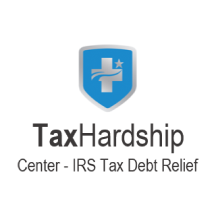Tax debt relief is the process of getting out from tax debt owed on an IRS and state level.
Consumers seeking tax debt relief typically find themselves with outstanding tax debt and have continually ignored IRS notices for years, and are seeking refuge from IRS collections, penalties, and interest with resolve in wage garnishments and bank levies.
What fees are associated with tax debt relief?
A consultation will determine the financial status of consumers and evaluate which approach to resolution would be the most beneficial; then, the fee will be determined within a written contract.
Other methods include charging on an hourly basis, which can leave consumers in the dark concerning their overall out-of-pocket expenses.
Less likely to be imposed is a fee assessed by “task.” This method enables companies to charge separate fees for every aspect of work they do on the case and typically incurs the highest charge for clients.
We recommend working directly with the IRS to work out a payment plan if you have less than $10,000 in debt because, either way, there is no escaping the IRS and requesting an Installment Agreement may be less costly than signing up with a company who will charge for the same service.
Industry standard can be seen from $1,500 to $5,000 for tax cases.
What is an “offer in compromise”?
It’s important to keep in mind these programs are difficult to qualify for as taxpayers must demonstrate an extreme economic hardship while also being current with all previous filling and payment requirements. For consumers in an open bankruptcy, an OIC will not be granted.
Be wary of companies claiming they can get you an OIC, because again, IRS stats show it is highly unlikely that most taxpayers will have an OIC granted.
Can tax relief companies file my taxes for me?
If consumers are simply seeking a company to file taxes, we recommend going to your local accountant or tax filing office if you’re unable to file taxes on your own, rather than getting haggled into excessive fees imposed by tax relief companies.
What documents do I need to have for the IRS to review my case?
Contact the IRS at 1-866-681-4271 for any documents that you need but cannot otherwise locate.
Will tax debt relief affect my credit score?
Opting for installment agreements typically will not have any negative impact on credit ratings because you’re simply making contractual payments.
If, however, you stop making payments, then yes, the IRS can report this to the credit bureaus.
We recommend seeking advice from an experienced and licensed tax practitioner to determine the best solution to avoid negative credit ratings in conjunction with the best method to getting your tax debt resolved.


